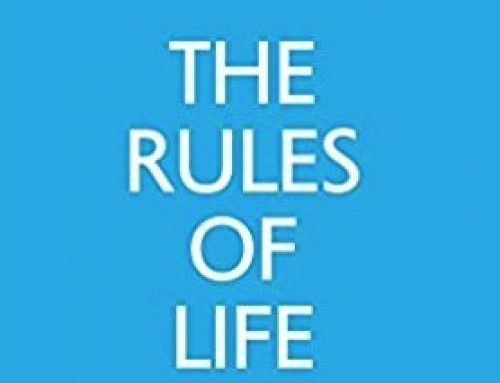This season’s book review is actually a run up to a forthcoming feature on the subject of entitlement. This book by author Roger Hutchison tells the true story of Calum MacLeod who lived on the remote island of Raasay, miles from the nearest road. Over the course of fifty years he watched as neglect and decline took their toll on his small community until he found himself the last man left.
Calum decided to do something about it. He built a road and one spring morning set off with a pick, a shovel and a wheelbarrow. Alone in the empty landscape he began to build a road. As the author says “Calum’s road would become a powerful and beautiful symbol of one man’s defiance against the erosion of his native culture”.
This is not a traditional business book, but it is the story of the type of courage and relentless stamina leaders have to take. Many write about the subject but when it’s easier to be defeated by red tape, bureaucracy or someone simply saying no they don’t always enact it. This is a story of a man who when told “no” took matters into his own hands. As the author says “it’s a simple morality tale about endurance”.
Don’t expect this to be an inspirational journal of how Calum got up every morning to work on the road and his deep reflections on life because that isn’t what you will get. Instead aside from Calum’s own story it is as much a social history dating back to the clearances of the Scottish Highlands.
It also reflects a movement that many are beginning to experience where-by we are beginning to ‘lean in’ to our communities to support others and fulfilling a sense of being valued for what we do.
Organisations now all have documented corporate social responsibilities – Calum had his own set that were rooted in his micro community. If no one will help us we must do something ourselves, or in this case one person.
This is the true antithesis of entitlement whereby many nowadays expect that something is an automatic right and will be given or done for them. For years the local people had petitioned for a road to be built between Brochel Castle and Arnish to enable them to access the roads network beyond, all be it a rudimentary one. Calum descended from a long history of hardship and poverty but determination to stand against what was wrong and against the natural laws of justice.
It’s also a book about heritage and in this increasingly globalised world this is something many are beginning to look back to. There is so much uncertainty ahead of us it can be comforting to look back and take strength and courage from our roots. Almost providing anchors to stabilise us in times of trouble knowing that previous hardships were overcome as too will ours, no matter how difficult they seem right now.
Calum started building the road in the 1950’s, although some say it was the 1960/s. As it was actually the conversion of an old sheep track to a road people simply became accustomed to Calum working around the track merely maintaining it. The confusion is probably also because Calum had to walk the old track every day in his role as the local postman and as a crofter his family’s peat cutting business used it and his child used the pathway on her way home from school.
Some sceptics might say that Calum had his own interest but there were many others in his community he could see would benefit if this sheep track was converted to a twelve -foot wide roadway. The road was also well thought out and meticulously planned and again how often do we actually convert our thoughts and dreams to reality? He was told along several areas of the route that it couldn’t be done, but instead Calum persevered finding solutions that would overcome the problem.
Calum was also told that the road would cost £30,000 to build which is probably nearer £6000.000 nowadays. Money of course that neither Calum nor the local community had. Instead Calum’s work around was to buy a book on road making – in essence a DIY manual on building a motorway. At one-point Calum thought he had struck luck and managed to involve the Royal Engineers who assisted him by surveying the route and pegging it out. A stop was however put to that by the local Council who diverted them on to another road they thought of more importance.
Still Calum didn’t give up, even when the only people who were left were he and his wife, others having moved out because of the physical isolation. To add insult to injury even the public telephone was removed. Building the road was now a question of survival. Although
Calum was by all accounts a mild mannered, shy courteous man he was clearly very focused. His wife Lexie recounted that he would go off in the morning with his piece and she wouldn’t see him again until dusk. However, and this is a lesson to us all about balance and re-charging our-selves. Sunday was sacrosanct and the only tasks Calum would carry out were essential ones such as feeding the livestock on his croft. The rest of the day he would rest and quietly recuperate replenishing his energies for the week ahead. The ability to understand why rest and time for reflection is so important is another essential lesson we could all take from Calum.
As said at the outset this isn’t a book about business but it has every ingredient including focus, resilience and courage in the face of true adversity.


